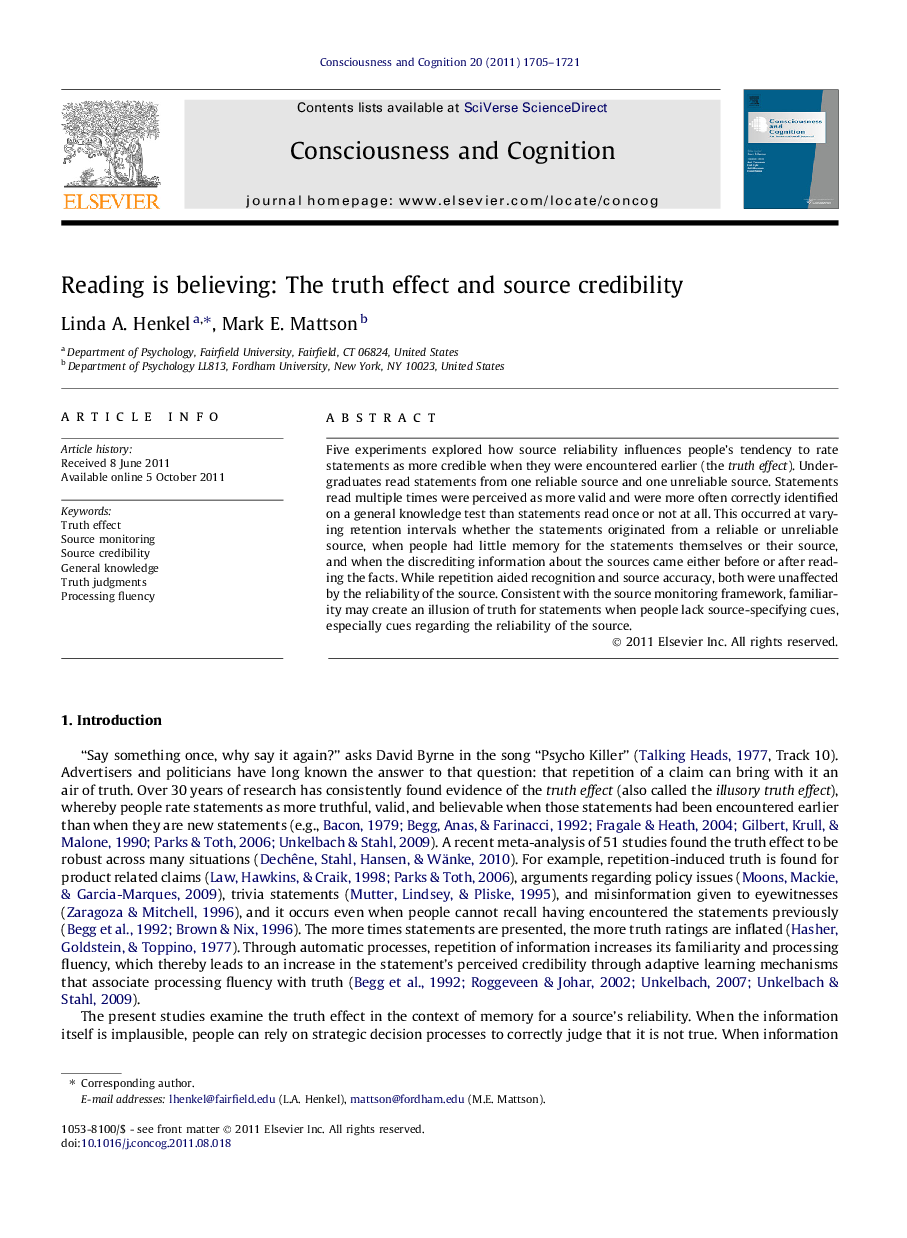| Article ID | Journal | Published Year | Pages | File Type |
|---|---|---|---|---|
| 7290628 | Consciousness and Cognition | 2011 | 17 Pages |
Abstract
⺠We examine how people rate statements as more true after earlier exposure, despite not remembering reading them. ⺠Repetition influenced both perceived truthfulness and general knowledge, even when statements were not remembered. ⺠This truth effect occurs regardless of whether statements originated from a reliable or unreliable source. ⺠Familiarity creates an illusion of truth for information encountered earlier.
Related Topics
Life Sciences
Neuroscience
Cognitive Neuroscience
Authors
Linda A. Henkel, Mark E. Mattson,
